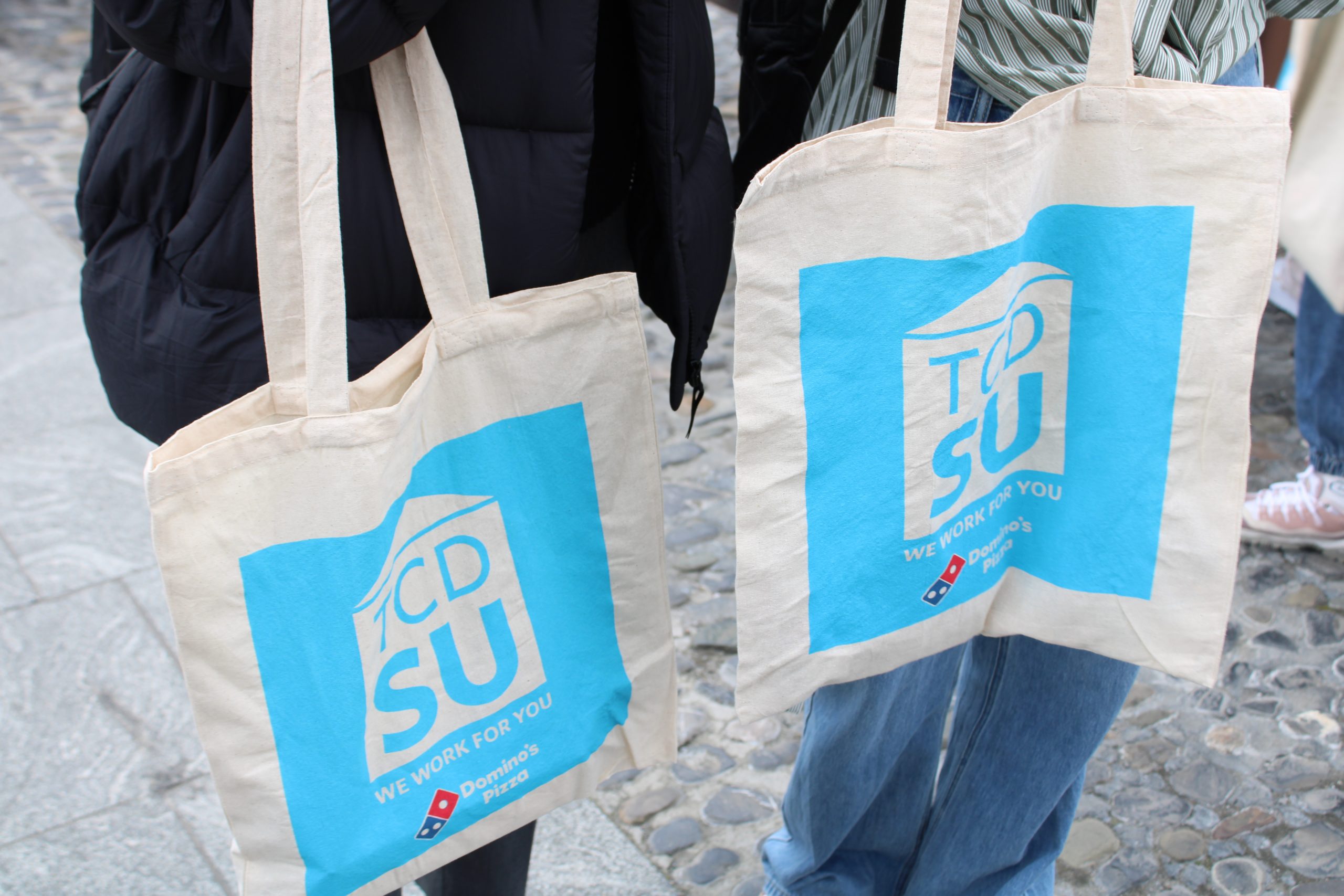Trinity College Dublin Students’ Union (TCDSU) and other societies were criticised for printing thousands of tote bags for Freshers’ Week at last night’s Phil debate.
UN Climate Youth Delegate Jenny Salmon said that the huge numbers of tote bags produced represents a “disconnect” between climate awareness and action among student organisations.
Salmon, a fourth year law student, said that she felt “so angry” at hearing that “3,500 bags” were produced by the union for Freshers’ Week.
TCDSU told Trinity News that it hands out around “3,000 bags a year”, but also uses tote bags left over from the previous year, adding that any bags that were not handed out will be left for next year. It did not confirm how many new bags were produced this year.
Though estimates vary, a 2018 Danish government report calculated that a standard cotton bag will need to be reused 7,100 times in order to offset the environmental impact of its production, while organic cotton necessitates 20,000 reuses.
Salmon urged attendees to “keep an eye out for the rest of this year: “Will you see a single blue SU Domino’s pizza tote being used by Hilary term?”
Responding to the criticism, TCDSU Communications Officer Aiesha Wong said: “On paper, a reusable bag is better for the environment than a single-use plastic one, however, the unsustainability from tote bags nowadays comes from how people use them (treating them as disposable accessories and not using them long-term).”
Wong emphasised that the onus for pollution lies on large-scale industrial polluters, rather than individuals: “I think this culture of fast fashion should be something every individual should look to improve on within themselves, but there should also be a focus on the actual polluters, a study found that 100 companies are responsible for 71% of the world’s greenhouse gas emissions, and while individual consumers should do their best to live sustainably, we should also be looking for systemic change that targets industries that continue to contribute to major pollution and harm the environment.
“Someone might use a reusable coffee cup or tote bag every single day for the rest of their lives, but that won’t offset a week of Aer Lingus flights.”
The debate, held by the University Philosophical Society (the Phil), tackled the motion “This House would be an ecoterrorist”, with Salmon speaking in first proposition.
TCDSU Environmental Officer Nathan Hutchinson Edgar and climate activist Saoirse Exton also spoke for the proposition, while Dr Suryapratim Roy of the School of Law and journalist John Gibbons argued in opposition.
Hutchinson Edgar defended the use of “terrorist” tactics by organisations such as the Earth liberation front to achieve environmental goals, arguing that in over 1,000 “attacks” on fossil fuel infrastructure, few people have ever been hurt.
Roy countered that the term “ecoterrorist” was coined by opponents of climate action to discredit and vilify civil disobedience, and that therefore climate activists should not adopt it.
Gibbons concluded the debate by arguing that the true ecoterrorists firms who continue to produce and sell fossil fuels while fully aware of the destruction they cause. The motion was defeated by a vote among the audience.






